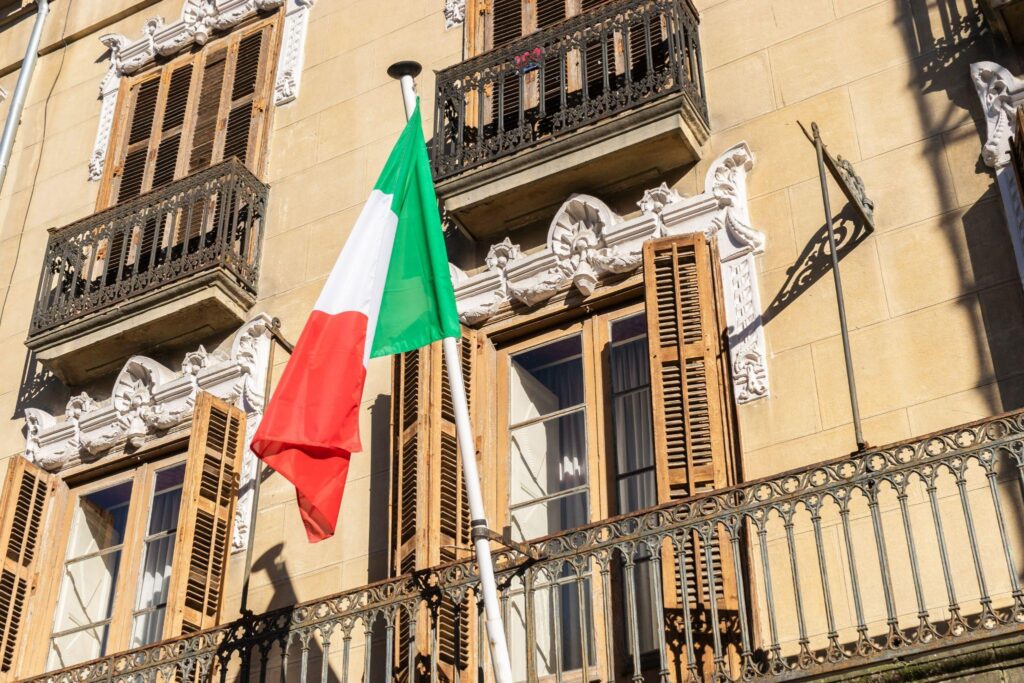Overcoming the Most Common Problems Obtaining Italian Citizenship
Overcoming the Most Common Problems Obtaining Italian Citizenship
While some applications to become an Italian citizen proceed without issues, there are some common problems getting Italian citizenship that you might face. If you are applying for Italian citizenship and run into problems like these, there are steps you can take to overcome these obstacles.

1. Italian Consulate Delays and Process Issues
The wait times to obtain an appointment at your regional Italian consulate might come as an unpleasant surprise. Appointments are often scheduled out for two years in some locations and, at times, there may be no appointments available at all, meaning you might be waiting just to get on the calendar.
Additionally, each consulate has its own specific requirements for your application, and the paperwork submitted to a consulate in a different part of the world will most likely not be accepted by the one with jurisdiction where you live. The process for your local consulate must be followed to the letter, or your application may be denied, and you will need to wait for another appointment to present the required documents in the correct format.
Resolving Consulate Process Issues
To prevent long delays and deal with process challenges, you should:
- Schedule the appointment at your local Italian consulate as soon as possible.
- Gather required documents and have them translated and verified by apostille while you wait.
- Obtain expert help to review your application before your consulate appointment.
- Consider taking a case to the Italian court system if your application is denied or you cannot obtain a consulate appointment after waiting two years.
2. Missing, Inaccurate, or Incomplete Documents
As you gather together the documents required to apply for Italian citizenship by descent (jure sanguinis) or citizenship by marriage (jure-matrimonii), you are likely to identify some problems. Very often your Italian ancestor might have changed their name, either intentionally or by the mistake of an immigration office. The difference in how dates are written in the European Union and the United States also means some birth certificates might not match recorded birth dates on immigration records.
Consulate guidelines state that there may not be “significant discrepancies” in your submitted paperwork and Italian vital records. Preparing your application using inaccurate information might result in your application being denied based on eligibility questions or because of the inability to clearly establish that your Italian ancestor was born in Italy.
Resolving Issues with Documents and Vital Records
If you are aware of discrepancies within your documents, or if you cannot locate a marriage certificate or other essential record, you can :
- Contact the local commune in Italy to locate missing documents.
- If you can’t locate a marriage certificate you must take in consideration the idea of applying in an Italian court. Many times ancestors were married in the US and not in Italy.
- Obtain an official letter establishing that the document does not exist.
- If your ancestor was married in Italy but you can’t locate the marriage documents, you may obtain an official letter from the comune (the local administrative division) stating that they do not have it, then proceed to obtain the documents from the church where the wedding took place. If not found at the church, you’ll be required to go through the Italian court.
- Submit an expert opinion letter which outlines for the consulate how the discrepancy occurred and which is the correct information.
- Seek a “one and the same” order from a judge if the consulate is not satisfied with an expert opinion letter in the case of name discrepancies with all documents in hand.
- Contact a reputable Italian American citizenship assistance program for additional advice.
3. Unresolved Questions About Your Eligibility for Italian Citizenship
You may firmly believe that you meet the eligibility requirements for Italian dual citizenship, but your local consulate may disagree, based on your submitted application. If you are applying for citizenship by marriage, you must have basic proficiency in the Italian language. The eligibility requirements for citizenship by descent or ancestry include a number of key dates that might cause your request to be denied.
However, recent court cases are calling many of these into question, and Italian courts are granting citizenship to some individuals whose ancestors were naturalized. In cases where a child of a female Italian ancestor who was born before January 1, 1948 was the cause of an application denial, the courts will often overturn the decision that the consulate was required to make under Italian law.
Resolving Questions Regarding Eligibility for Italian Citizenship
If the consulate states that you are not eligible for Italian citizenship, it is important to understand the reason for that denial and that there are still steps you can take to appeal or overturn that decision.
- Submit a revised application based on another ancestor.
- Speak to experts in the field to identify other paths to Italian citizenship.
- Move to Italy under a visa and reside in Italy long enough to qualify, and then apply for citizenship under Italian immigration law.
- File a case in Italian court asking that they grant an exception for reasons of gender equity or other special circumstances.

Appealing or Challenging the Denial of Your Application
It is becoming more common to challenge a denial of citizenship in Italian courts, based on recent decisions that allowed many people descended from Italian women born before 1948 to become citizens on a case by case basis. Italian courts have shown leniency for those whose ancestors were naturalized without their consent or knowledge. Even the long waiting periods to obtain a consulate appointment have allowed some applicants to receive their Italian citizenship through the court system rather than through a consulate.
So while the most effective path for most people who are eligible is to submit a complete and accurate application to their local consulate, there are other options open to those who may be denied based on inaccurate documents, long waiting periods, or laws that many consider to be antiquated. Speaking with specialists in dual Italian citizenship will help you have the best chance of approval by your consulate and provide immediate assistance should your first application be denied.
Helping You Overcome Obstacles to Italian Citizenship
You might have applied for Italian citizenship in the past and been denied, or you may just be getting started in preparing an application. The benefits of dual citizenship include traveling under an Italian passport throughout the EU, as well as the right to live and work in the EU with health and education benefits. Don’t let a single obstacle stop you from obtaining your rights as an Italian citizen and passing these benefits on to your children.
Contact the Italian American Citizenship Assistance Program today to find out if you are eligible and how straightforward your journey can be. We are familiar with the entirety of the process and can provide all the services you need to obtain official documents, translations, and apostille and resolve discrepancies. Whether you apply by descent or by marriage, if there is a path to your Italian citizenship, we will help you every step of the way.

